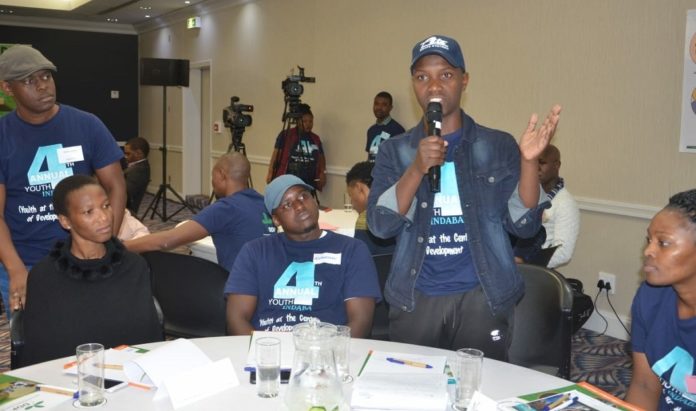In commemoration of Youth Month, the Democracy Development Program in partnership with the Konrad Adenauer Stiftung hosted its 4th Annual Youth Indaba on Wednesday in Durban, which was aimed at exploring identity and how youth identify themselves in different perspectives; identity as an individual and that of a nation and other social issues affecting them.
“We decided that it was time for the youth to come together and provoke conversations around issues affecting them, especially the topic of identity and how they understand it in a South African context,” Mbali Mkhize of the Democracy Development Program told the Daily Vox in an interview.
“We are giving young people this platform to discover themselves in a complex democracy that is South Africa. Our identity is quite complex and that is due to our past as a nation, so, looking into identity from different aspects including education is one of the aims of this conference,” Mkhize said.
In its sessions, the conference explored different themes where young people were given a chance to engage in a dialogue.
Identity remains a crisis in South Africa. This, according to research, is due to the history of South Africa; particularly the legacy of apartheid. A study by the South African College of Applied Psychology reveals that some forms of identity were institutionally imposed, and after the era, South Africans had to form a new relationship with the country and create new identities.
One of the themes of the conference was “Identity building as a young person in a complex democracy explored the importance of both individual and group identities.”
Asked what were some of the key enablers of identity complexities that the DDP has identified, Mkhize said: “When we speak of identity in a South African context we speak of sexuality, culture, tradition and education. Looking at early childhood, identity becomes complex as they grow up because of the environments. A child from a government school is very different from that of a child from a private school, and that’s the identity they carry throughout their teenagehood and adult life, and that’s when complexity intensifies.”
Although the conference was solely for young people to voice out their concerns and engage in a useful dialogue, some attendees felt that there are deeper conversations relevant to young people they felt should be explored into a deeper level.
Mthunzi Gasa (28) from Newlands said the platform is a start to a great conversation around issues affecting youth on a grassroots level, however, a lot still needs to be addressed.
“We are living in areas where we are affected by social issues such as unemployment and depression. Young people are dying and we need platforms where instead of discussing entrepreneurship, we can be allowed to express ourselves and what we go through on a daily basis.
“It’s a great thing to be sharing insightful ideas on entrepreneurship but we need to start with things that affect us the most. We hardly know much about the people we interact with, and people are slowly dying with the fear of being ridiculed when they share their life challenges,” he said.
Entrepreneurship, which is one of the topics explored during the conference was aimed at encouraging the youth not to be reliant on employment, but rather create their own employment through businesses. But Gasa said that it’s not easy to become entrepreneurs when no one offers support.
“People who have made it in life keep on telling us how we can make it if we know what we want. This makes us look like we don’t know what we want as the youth, and it’s discouraging. We need people who understands us from our level and not people in academia,” Gasa added.
A 26 year old woman from KwaNgcolosi, west Durban said unemployment remains a crisis that needs to be looked into more closely when provoking discussions about the youth.
“We are grateful for the platform DDP creates for us but more than anything else, I feel as though we don’t discuss unemployment enough and that’s one of the major issues affecting young South Africans for the past decade,” she said.
In May, Statistics South Africa revealed that the unemployment rate in South Africa had increased by 0.9 percentage points, making it a total of 27.6 percent in 2018. Youth unemployment was 55.2 percent.
Featured image by Lizeka Maduna









